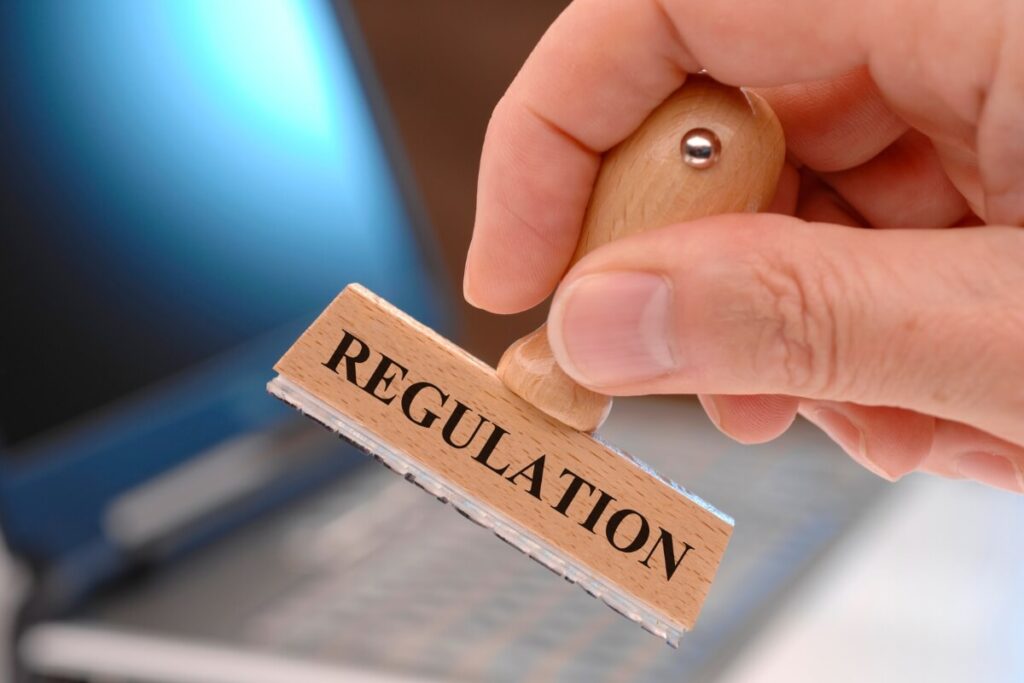
HR compliance ensures that organizations adhere to the laws and regulations governing employment practices, creating workplaces that are fair, safe, and equitable. But compliance is more than just ticking legal boxes—it’s a strategic imperative. A robust compliance framework protects businesses from penalties and reputational risks while reinforcing trust with employees and stakeholders.
HR regulations are constantly evolving. From new data privacy laws to shifting diversity and workplace safety standards, organizations must navigate a web of requirements that often vary across jurisdictions. Staying informed and agile is essential to managing these challenges effectively.
Non-compliance isn’t just a legal risk—it can disrupt operations, erode employee confidence, and damage a company’s reputation. By proactively addressing compliance, organizations not only mitigate these risks but also foster an ethical workplace culture that drives long-term success.
Let our experts streamline your HR and payroll operations, compliance and reporting across borders. We work in 80+ countries on accounting, payroll, tax and more. Reach out to speak with the team today.
Contents:
- What is HR Compliance?
- Why is HR Compliance Essential for International Business?
- Global Overview of HR Compliance Trends for 2025
- Regional Compliance Requirements for HR in 2025
- Key HR Compliance Areas to Monitor
- How to Manage HR Compliance
- Building Compliance into a Global HR Strategy
What is HR Compliance?
HR compliance is the process of ensuring that an organization’s employment practices align with applicable laws, regulations, and industry standards. This includes everything from adhering to labor laws and tax requirements to safeguarding employee data and promoting diversity and inclusion.
At its core, HR compliance is about more than just avoiding legal trouble. It’s about creating a foundation for trust, fairness, and ethical practices within the workplace. When compliance is embedded into the fabric of an organization, it supports a culture where employees feel valued, stakeholders have confidence, and business risks are minimized. In this way, compliance is just one part of the global HR picture—HR teams must now balance local rules and expectations with making the company competitive in the fight to attract top talent across the world. Not to mention the fact that, beyond explicit legal requirements, some employees may have a cultural expectation of certain benefits in their local region.
In an increasingly globalized business world, HR compliance has taken on even greater importance. As companies operate across multiple jurisdictions, they must navigate complex, ever-changing regulations to remain competitive and uphold their reputation.
Why is HR Compliance Essential for International Business?
1. Navigating Regulatory Complexity Across Borders
Operating in multiple countries means facing a wide range of regulations, from labor laws to tax obligations.
Each jurisdiction has unique requirements, and even small oversights—such as misclassifying an employee or failing to comply with local holidays—can lead to significant penalties. Strong compliance practices help businesses confidently manage these complexities while avoiding costly mistakes.
2. Supporting a Cohesive Global Workforce
Compliance isn’t just about following rules—it’s about creating consistency across regions. A compliant organization ensures all employees, no matter where they’re based, are treated fairly and receive equitable benefits.
This approach strengthens trust, enhances employee engagement, and fosters a unified workplace culture.
3. Protecting Reputation and Building Credibility
In the global marketplace, a company’s reputation is its currency.
Non-compliance with local regulations can lead to more than fines—it can damage relationships with clients, partners, and employees.
Demonstrating a commitment to compliance reassures stakeholders that your organization operates responsibly and respects local laws and cultural expectations.
4. Enabling Scalability and Growth
Expanding into new markets is exciting, but it also increases regulatory complexity.
HR compliance creates a solid foundation for growth by streamlining processes like onboarding, payroll, and benefits management. When businesses know they’re compliant, they can focus on scaling operations without fear of regulatory setbacks.
5. Staying Ahead of Changing Regulations
Laws surrounding employment practices, data privacy, and workplace safety are constantly evolving. A proactive compliance strategy ensures your business can adapt to new requirements without disrupting operations.
Staying ahead of these changes is critical for maintaining stability in an ever-shifting global environment.

Global Overview of HR Compliance Trends for 2025
As we move into 2025, HR compliance is evolving rapidly, shaped by global trends, workplace changes, and new regulations.
Increased Emphasis on Data Privacy and Protection
Data privacy continues to be a top priority for HR teams worldwide. With regulations like GDPR in Europe and CCPA in the U.S.—and new laws emerging in other regions—businesses are under pressure to safeguard employee information more effectively than ever.
This means secure HR systems, staff training on handling sensitive data, and stricter protocols for reporting breaches. Failing to meet these standards could lead to hefty fines and damage to your reputation, making data protection non-negotiable in 2025.
Advancements in Pay Transparency and Equity
Pay transparency isn’t just a buzzword anymore—it’s becoming the law in more places. From EU directives to U.S. state regulations, businesses are increasingly required to disclose salary ranges in job postings and address pay gaps across demographics.
To keep up, companies need to audit their pay practices, address inequities, and communicate their efforts clearly. Employees and regulators alike are watching, so getting this right isn’t just about compliance—it’s about fairness and trust.
Enhanced Focus on Diversity, Equity, and Inclusion (DEI) Initiatives
Diversity, equity, and inclusion remain at the heart of both compliance and workplace culture. Governments are ramping up anti-discrimination laws, and many now expect proof of active DEI efforts.
This means moving beyond policies on paper to tangible actions like inclusive recruitment, anti-harassment training, and ongoing support for underrepresented groups.
Companies that excel in this area don’t just avoid legal issues—they attract top talent and build stronger reputations.
Adaptations to Remote and Hybrid Work Models
Remote and hybrid work scenarios are creating new compliance challenges. Companies need to address cross-border tax rules, local labor laws, and even health and safety regulations for home offices.
Beyond that, ensuring remote employees have equal access to training, benefits, and career opportunities is critical. For example, let’s say you hire a small local team in a new country to assess and research the market before fully committing to entity set-up. How do you ensure these remote employees have equal access to training, benefits, and any other perks afforded to the rest of the company? Businesses that adapt will not only stay compliant but also keep their teams engaged and motivated.

Regional Compliance Requirements for HR in 2025
As the global regulatory environment grows more complex, staying on top of regional HR compliance requirements is critical. These regulations cover everything from workplace safety to data protection, ensuring employees are treated fairly and equitably.
North America
United States
HR compliance in the U.S. continues to evolve at both the federal and state levels, with a strong focus on worker protections, pay equity, and workplace safety.
Updates on Federal and State Labor Laws
- Federal laws are adapting to new workplace realities, including expanded protections for gig workers and flexibility in work arrangements.
- At the state level, California leads the way with updates to family leave policies and stricter workplace harassment laws, while states like New York and Washington are introducing progressive labor reforms.
Changes in Wage and Hour Regulations
- The Department of Labor is revising rules around minimum wage and overtime eligibility, which could affect how businesses classify salaried employees.
- Some states such as California and New York are also raising minimum wage thresholds, requiring companies to rethink their compensation strategies.
New Guidelines on Workplace Safety and Health
- OSHA is expanding its focus to include risks associated with remote work and pandemic-related concerns.
- Employers must implement robust reporting systems and preventative measures to address workplace injuries and illnesses, regardless of where employees are based.
Canada
Canada is prioritizing equitable treatment and workplace safety with updates at both federal and provincial levels.
Modifications in Employment Standards
- Employment standards are being modernized to reflect the rise of flexible work arrangements and remote policies.
- Provinces like Ontario and British Columbia are introducing new paid leave options and protections for gig and precarious workers.
Adjustments to Occupational Health and Safety Regulations
- Health and safety standards now include mental health considerations and ergonomic requirements for remote workers.
- Employers are required to provide mandatory health and safety training, with significant penalties for non-compliance.
Europe
European Union
The EU continues to lead the charge in protecting workers’ rights and strengthening data privacy, with notable updates for 2025.
Revisions to the General Data Protection Regulation (GDPR)
- The GDPR has been updated to address the rise of AI and biometric data use in workplaces.
- Employers must now navigate stricter rules for handling employee information, from storage to processing. With increased penalties for violations, businesses need robust data protection policies and systems to avoid significant fines.
New Directives on Employee Rights and Protections
- Work-life balance is a top priority in the EU’s new directives, including expanded parental leave and flexible working rights.
- The gig economy is also under scrutiny, with new regulations requiring platforms to offer gig workers protections similar to traditional employees.
United Kingdom
Post-Brexit, the UK is reshaping its employment laws, balancing divergence from EU standards with retained principles.
Post-Brexit Employment Law Changes
- The UK government is revising laws on working time, agency worker rights, and holiday pay.
- Businesses operating in both the UK and EU must carefully monitor how these changes differ to stay compliant across regions.
Updates on Immigration and Right-to-Work Checks
- Stricter immigration rules now require additional documentation for right-to-work checks, particularly for non-UK nationals.
- Employers need to ensure compliance to avoid penalties and maintain workforce stability.
Asia-Pacific
China
China continues to refine its labor laws, with a focus on employee benefits and workplace protections.
Recent Labor Contract Law Amendments
- Employers are now required to provide greater transparency in employment terms, severance packages, and contract conditions.
- With strict penalties for non-compliance, businesses must ensure their contracts and practices align with these updated requirements.
New Social Insurance Compliance Requirements
- Social insurance contributions, including pensions and healthcare, must now be more transparent.
- These changes aim to enhance employee welfare and reduce disputes, making it vital for employers to stay ahead of their obligations.
Australia
Australia is advancing its employment laws to promote fairness and combat workplace discrimination.
Changes in Fair Work Act Provisions
- Updates to the Fair Work Act now require employers to provide casual workers with entitlements similar to permanent staff.
- Employers are also mandated to offer flexible working arrangements when reasonable, strengthening employee rights.
Updates on Workplace Discrimination Laws
- New anti-discrimination laws require companies to actively prevent harassment and bullying.
- Implementing regular training sessions and robust reporting systems has become a compliance standard, helping to create safer workplaces.
Latin America
Brazil
Brazil is modernizing its labor regulations to accommodate new work arrangements and strengthen employee protections.
Labor Reform Updates
- Recent reforms address inconsistencies in contracts for gig workers and freelancers, pushing businesses to align their practices with clearer guidelines.
- Non-compliance can lead to disputes and costly penalties.
New Compliance Standards for Remote Work
- Remote work regulations now require employers to reimburse home office expenses and ensure proper setups. These measures aim to protect employees while clarifying employer responsibilities.
Mexico
Mexico’s labor reforms emphasize transparency and equity, reshaping key aspects of workplace practices.
Reforms in Outsourcing Regulations
- Outsourcing practices face stricter rules, requiring businesses to properly classify workers and offer full employee benefits.
- Non-compliance can result in severe financial and legal consequences.
Adjustments to Employee Profit-Sharing Rules
- New guidelines mandate higher thresholds for employee profit-sharing, ensuring more equitable distribution of company earnings.
- Employers must integrate these changes into their financial planning to remain compliant.

Key HR Compliance Areas to Monitor
HR compliance is more complex than ever, with critical areas demanding close attention as businesses prepare for 2025. From safeguarding employee data to navigating remote work regulations, staying proactive is essential to meet legal obligations and create a thriving workplace. Here’s where organizations need to focus:
Data Privacy and Protection: Safeguarding Sensitive Information
Protecting employee data is non-negotiable as privacy concerns and data breaches continue to dominate headlines.
Global regulations like GDPR in Europe and CCPA in California require businesses to:
- Implement secure storage
- Restrict access to sensitive information
- Provide regular training on data privacy protocols.
Regular audits and robust practices not only help avoid fines but also build employee trust, reinforcing a culture of transparency and security.
Wage and Hour Laws: Staying Ahead of Fair Pay Standards
Fair compensation is at the forefront of regulatory changes for 2025. With minimum wage increases in many regions and tighter overtime rules, businesses need to revisit pay scales and ensure accurate time tracking. Misclassifying employees or failing to meet wage thresholds can result in costly legal issues. Going beyond compliance by fostering equitable pay practices shows employees they’re valued while reducing turnover risks.
Payroll compliance is another critical part of meeting wage and hour regulations. In 2025, businesses must navigate minimum wage increases, overtime rules, and tax withholding updates across different regions. Accurate employee classification—whether exempt or non-exempt—is essential to avoid costly penalties.
Additionally, payroll systems must ensure timely payment of wages and benefits while adhering to regional tax laws. Proactively auditing payroll practices can help organizations stay compliant and build trust with employees.
Workplace Safety and Health: A New Era of Responsibility
The definition of workplace safety is expanding, with a growing focus on mental health, ergonomics, and remote work.
Compliance now includes traditional hazard prevention alongside supporting mental well-being and providing ergonomic resources for home offices. Regular training, inspections, and accessible incident reporting systems are key to meeting these evolving standards. Prioritizing safety not only keeps your business compliant but also enhances productivity and morale.
Diversity, Equity, and Inclusion: Building a Fair Workplace
DEI initiatives have moved from being “nice to have” to being essential.
Anti-discrimination laws worldwide are pushing businesses to adopt measurable actions, such as equitable hiring practices, anti-bias training, and fair performance evaluations.
A truly inclusive workplace drives innovation, attracts top talent, and demonstrates a commitment to fairness—while keeping your business compliant with evolving regulations.
Remote and Hybrid Work: Navigating Complex Landscapes
Remote and hybrid work models are here to stay, but they come with their own set of challenges. Navigating labor laws, tax implications, and cross-border employment rules requires careful planning. Ensuring remote employees have equal access to resources, benefits, and career growth opportunities is crucial—not just for compliance but also for maintaining engagement and satisfaction. Businesses that tackle these complexities head-on position themselves as adaptable and forward-thinking employers.
By focusing on these areas in 2025, businesses can do more than avoid penalties—they can build workplaces that are resilient, fair, and inclusive. Proactively addressing compliance challenges fosters trust and positions organizations as leaders in their industries.

How to Manage HR Compliance
Keeping up with the fast-changing world of HR compliance requires more than awareness—it takes action. By adopting proactive strategies, businesses can stay ahead of regulatory requirements and build a workplace rooted in accountability and transparency.
HR leadership can’t achieve this level of agility alone. It requires close collaboration with other parts of the business—whether that’s compliance, learning and development, or IT—to audit and upgrade on a regular basis. Here’s how to effectively manage compliance in 2025:
Conduct Regular Compliance Audits: Spotting Gaps Before They Grow
Think of audits as your compliance safety net.
By reviewing HR policies, processes, and practices against current regulations, businesses can identify and address issues before they become costly problems. Whether it’s updating outdated policies, revising employee handbooks, or improving documentation, regular audits ensure your organization is always one step ahead.
Payroll audits are an essential part of maintaining HR compliance. Regularly reviewing payroll systems ensures that wages, overtime, and tax deductions are calculated accurately. These audits can also identify classification errors and discrepancies in benefits administration, helping businesses avoid fines and employee disputes.
Stay Informed on Legislative Changes: The Key to Staying Ahead
HR compliance laws are constantly evolving, and staying informed is essential. Subscribe to updates from regulatory bodies, consult legal experts, and attend industry events to keep up with labor laws, wage adjustments, and safety standards.
Being proactive about tracking these changes means you can implement updates without disrupting your operations.
Implement Comprehensive Training Programs: Building a Knowledgeable Workforce
Compliance isn’t just an HR responsibility—it’s everyone’s job.
Training programs ensure that employees, managers, and HR teams alike understand their roles in maintaining compliance.
Topics like workplace safety, DEI, and data privacy reinforce their importance and prevent accidental breaches. A well-informed workforce helps build a culture of accountability and compliance.
Utilize Technology for Compliance Management: Work Smarter, Not Harder
Modern problems require modern solutions. HR compliance software automates processes like document tracking, policy updates, and reporting, while data analytics tools help monitor compliance metrics in real time.
This technology doesn’t just save time—it provides actionable insights that help businesses continuously improve and refine their compliance efforts.
Building Compliance into a Global HR Strategy
HR compliance in 2025 is more than a legal requirement—it’s a cornerstone of building fair, resilient workplaces that drive growth. By staying ahead of evolving regulations and focusing on critical areas like data privacy, wage laws, and DEI, businesses can mitigate risks and foster trust across their global workforce.
When it comes to managing global HR compliance, our team brings deep expertise and cutting-edge technology to the table. From simplifying payroll across multiple countries to handling complex statutory benefits and labor requirements, weConnect helps you navigate the toughest challenges with confidence. Contact us to transform your compliance processes into a seamless, strategic advantage for your global business operations.